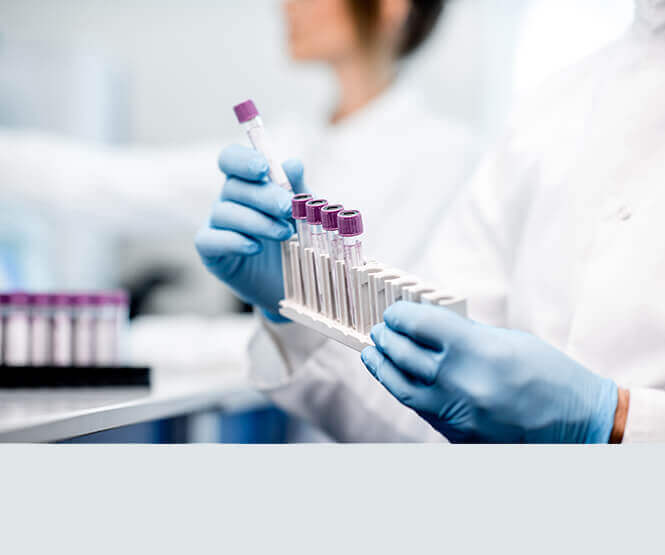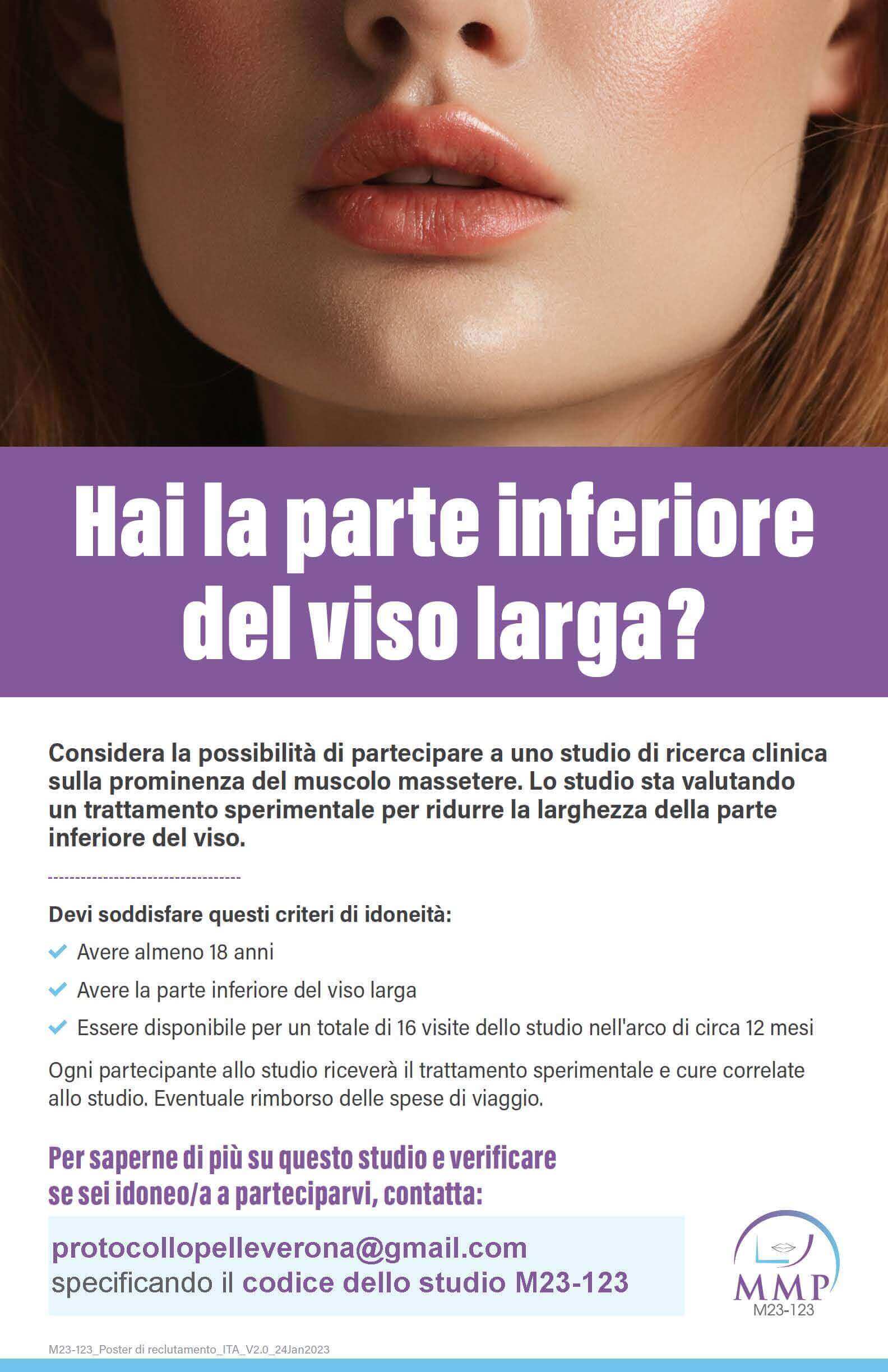CRC - Centro Ricerche Cliniche di Verona

The Centro Ricerche Cliniche di Verona (CRC) was founded in 2005 and is located in the G.B. Rossi General Hospital. It is owned and operated by The Verona University Hospital and Verona University.
Our mission is to assist both commercial and non-profit research organizations in early clinical drug development. The objectives of the CRC are to:
- Conduct Phase I and Proof-of-Concept clinical trials to the highest standards of quality and with rapid turn-around;
- Support the development of interdisciplinary scientific collaboration;
- Share facilities and know-how with private or public organizations involved in pharmacological research;
- Support non-profit research using CRC profits.
Please, visit our Healthy Volunteers web site >>
See more about us »
Study Types

The CRC specialises in designing and executing Proof-of-Concept studies using targeted populations, state-of-the-art technology and human disease.
A full range of Clinical Pharmacology services is also provided (e.g. single/multiple ascending dose, drug-drug interaction, pharmacokinetics, food effects, bioequivalence) by means of an in-house Clinical Pharmacology Unit, equipped to the highest standards and operating in close connection with specialist intensive care expertise in Cardiology, Anaesthesiology, Internal Medicine, Surgery and Neurology.
See more about our Clinical Pharmacology Unit »
Our Quality System

The CRC is in full compliance with International Good Clinical Practice (GCP) standards and is Certified according to the UNI EN ISO 9001:2008 standard; transition to the 9001:2015 ISO standard has been completed in 2018.
The CRC Quality Management System (QMS) comprises our mechanisms for ensuring that all our services are performed to the highest ethical standards, conform to all regulatory requirements and satisfies contractual obligations.
We continually improve the effectiveness of its QMS through a systematic approach, starting from defining and planning strategy and objectives in order to standardize implementation and compliance by a defined Quality Policy and procedures, checking effectiveness and compliance by QA, QC, Management Review, data and project review, audits and customer survey results.
See more about our QS »

CRC News
5/06/2024 |
8 giugno 2024Il Comitato Etico Territoriale dell'Area Sud-Ovest Veneto incontra i cittadini per illustrare le proprie attività e il ruolo dei cittadini nella ricerca clinicaINGRESSO LIBERO A TUTTA LA CITTADINANZA
Il CET (Comitato Etico Territoriale) ha deciso di presentarsi alla cittadinanza e agli operatori sanitari per condividere il proprio percorso e spiegare i meccanismi della ricerca clinica in Italia, allo scopo di aumentare il coinvolgimento della popolazione, di una ricerca clinica partecipata. |
23/05/2024 |
Informazioni sull'indagine clinica MaSQue 2028-601-008Questa indagine clinica è un'indagine clinica in aperto sulla sicurezza e sull'efficacia delle iniezioni intradermiche di gel iniettabile ELAPR002f nel miglioramento di diverse caratteristiche della qualità della cute in adulti sani. Un'indagine clinica in aperto è un'indagine clinica in cui sia i partecipanti allo studio clinico sia il personale dello studio clinico sono a conoscenza del trattamento somministrato. A tutti i partecipanti idonei viene somministrato il gel iniettabile ELAPR002f nelle guance.Gli attributi di qualità della cute analizzati sono in presenza di linee sottili, texture della cute, elasticità, tono della cute e dimensione dei pori. Con il passare del tempo, invecchiamento e fattori ambientali influenzano la struttura e la funzione della pelle, cambiandone le proprietà elastiche e provocando un invecchiamento visibile.L'indagine clinica valuterà la sicurezza e l'efficacia del gel iniettabile ELAPR002f sulla base delle valutazioni dello sperimentatore e delle risorse dei partecipanti. Saranno misurati fattori quali la dimensione dei pori, il tono della pelle, l'elasticità, lo spessore e la densità.Se accetta di partecipare, la Sua salute sarà attentamente monitorata e la Sua privacy sarà tutelata.Lo studio è condotto presso l'Ospedale Borgo Roma sotto la responsabilità del Dott. Bertossi. Per qualsiasi altro chiarimento, puoi telefonare dal lunedì al venerdì dalle ore 9.00 alle ore 17.00 al telefono +39 045 8126619 oppure scrivere all'indirizzo: protocollopelleverona@gmail.com |
19/04/2024 |
Lavora con noi - Work with usIl CRC necessita di n. 1 Supporto Amministrativo per le attività di gestione amministrativa degli studi clinici.L’assunzione avrà le seguenti caratteristiche:
Requisiti:
Competenze da acquisire:
|
12/03/2024 |
Lavora con noi - Work with usIl CRC necessita di n. 1 Farmacista per la realizzazione di studi clinici.L’assunzione avrà le seguenti caratteristiche:
Requisiti:
Competenze da acquisire:
Potete consultare il bando di selezione e la domanda, disponibili a questo link: Bando e domandaSe sei interessato/a invia il tuo CV a info@crc.vr.it entro le 17,30 di lunedì 25 marzo 2024. |
22/02/2024 |

Per saperne di più su questo studio e verificare se sei idoneo/a a parteciparvi, contatta: protocollopelleverona@gmail.com specificando il codice dello studio M23-123. |
|
|
See all News
|

Useful links
- Italian Medicines Agency | Aifa.gov.it
- Istituto Superiore di Sanità | ISS
- European Medicines Agency | Ema.europa.eu
- Database of clinical trials in the European Union starting 31/01/2022
- Database of clinical trials in the European Union before 31/01/2022